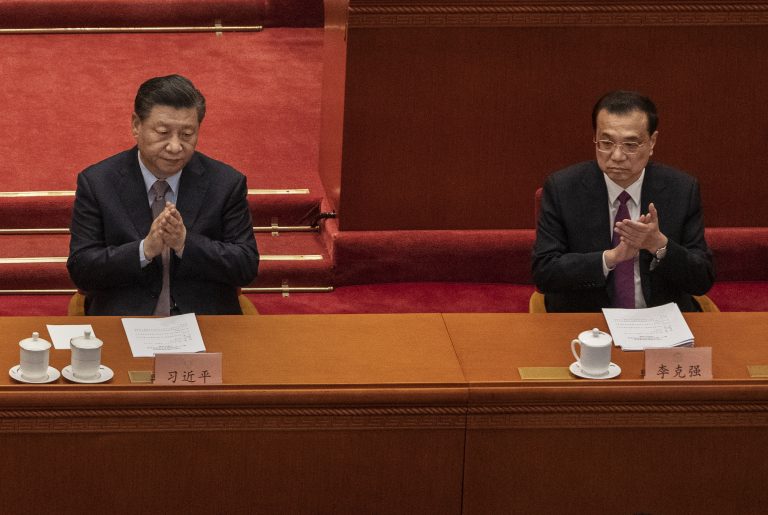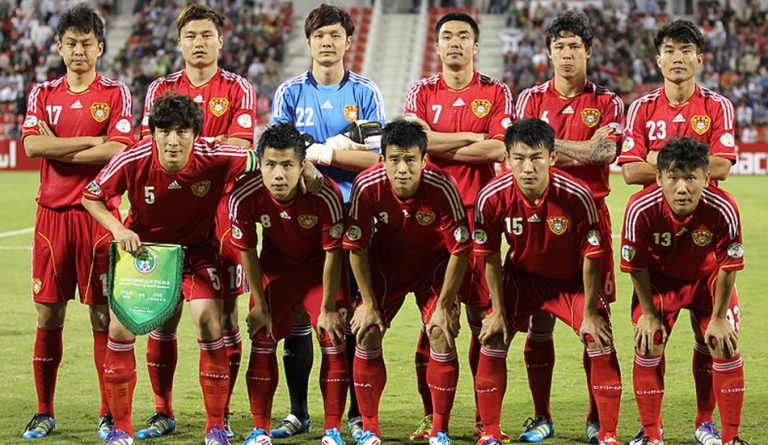Xi Jinping’s dismal handling of COVID-19 outbreaks in Shanghai and other parts of China have put the nation’s leader in such serious trouble that even his closest colleagues no longer respect his authority, according to myriad online rumors that began circulating around the end of April.
Prominent among this speculation — which has proliferated in both Chinese and English-language circles — has been talk of a split between Xi and China’s premier, Li Keqiang.
Though various crises have tested the Chinese Communist Party’s image and ruling ability, the rumors often lack credibility when considered alongside normal CCP operations and the reality of factional struggle and political developments in the regime. However, the timing and popularity of the rumors suggest that many both inside and outside China want to see Xi’s exit, and that the Chinese leader does indeed face risks to his “strongman” rule.
POLITICS IN COMMUNIST CHINA
- ‘Zero-COVID’ Lockdown in Shanghai Compounds Xi’s Political Dilemma
- 3 Key Takeaways From China’s ‘Two Sessions’ Meetings This Year
- As Challenges Mount, China’s Xi Calls for ‘Self-Revolution’
Is Xi losing his grip?
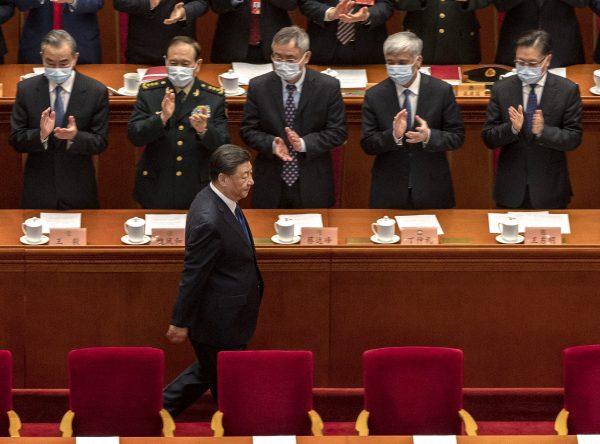
On April 23, a rumor emerged in Chinese-speaking circles that multiple National People’s Congress deputies had written to NPC Standing Committee chairman Li Zhanshu demanding that the “bandit Jinping” (賊近平) be removed from office.
A day later, a rumor that CCP General Office director Ding Xuexiang and Guangdong governor Wang Weizhong had replaced Shanghai Party secretary Li Qiang and Shanghai governor Gong Zheng began making the rounds.
On May 2, it was rumored that Xi Jinping announced that he was relinquishing power and retiring at the 20th Party Congress during an enlarged meeting of the Politburo Standing Committee (PbSC), which heads the Communist Party. The rumor added that Li Keqiang would take over the running of the central government, as well as officially take over as the leader of China and the CCP at the Party Congress.
The hearsay was later reported by several Chinese “self-media” personalities, including the Canadian-based blogger “Lao Deng,” who claimed that a Party security source told him that a “coup” had led to Xi stepping aside.
Success
You are now signed up for our newsletter
Success
Check your email to complete sign up
On May 11, The Wall Street Journal reported that Li Keqiang is “helping press” Xi Jinping to “dial back some measures that steered the country away from Western-style capitalism and contributed to China’s economic slowdown,” citing “government officials and advisers close to decision-making.”
The Journal’s sources claimed that Li was behind Xi’s recent efforts to ease property restrictions, relax the crackdown on private technology firms, and help manufacturers impacted by the “zero-COVID” policy to resume production.
The article added that Li is trying to influence the selection of his replacement while Wang Yang and Hu Chunhua “may be gaining ground.” Meanwhile Xi’s “desired candidate” Li Qiang “being criticized by some inside the Party for his handling of COVID-19 outbreaks” in Shanghai.
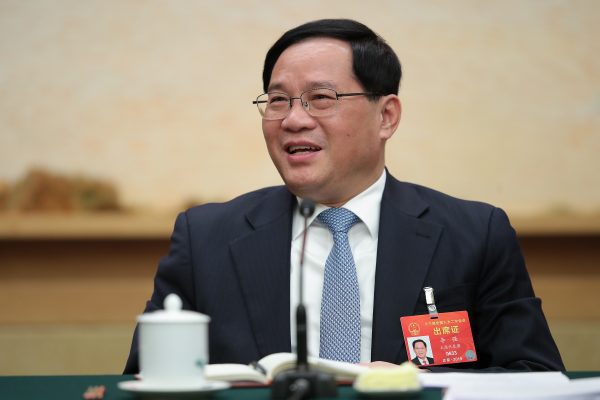
Wang Yang is a member of the seven-man PbSC, while Hu is on the 25-member Politburo and one of four vice-premiers under Li Keqiang.
In the Journal article, Li is presented as a “pragmatic” official who learned about the disasters caused by Xi’s political campaigns after going on inspection tours and is striving to undo the damage. Meanwhile, Xi is framed as a totalitarian leader in the vein of the regime’s founder Mao Zedong, putting “ideology over practical steps to keep the economy strong.” The article saw some traction in the English-speaking China-watching community.
Actual developments
Much as these rumors capture the imagination, they are easily debunked when juxtaposed alongside the standard workings of the Communist Party or actual developments in the Chinese political scene.
First, there have been no recent purges in the ranks of NPC deputies; Xi’s ally Li Zhanshu would hardly let a grievous insult to his political patron go unpunished. There have also been no changes in Shanghai’s top leadership; Li Qiang and Gong Zheng remain very much in charge.
The rumor that Xi Jinping had been replaced by Li Keqiang, either voluntarily or via a “coup,” is debunked by the former presiding over a May 5 Politburo Standing Committee meeting where he doubled down on “correctness” of the “zero-COVID” policy. Official Party and state media would proceed for days to hammer home Xi’s mantra of “persistence is victory.”
READ MORE
- ‘Unified National Market’ Push Exposes Steep Challenge of Reforming China’s Economy
- In Leaked Recording, Elite Chinese Scholar Laments Crippling Dysfunction of Communist Regime
- Does the CCP’s New ‘Historical Resolution’ Give Xi More Power? Not Really.
Meanwhile, Party organs like the Central Commission for Discipline Inspection and the People’s Liberation Army would release articles calling for “unswerving adherence” to “dynamic zero-COVID.” In particular, the PLA’s article, which was published on May 6, urged all officers and soldiers to “align their thinking and actions with the decisions and deployments of Party Central and Chairman Xi,” a call to action that would be impossible had Xi been marginalized per the rumor.
The Wall Street Journal’s article about Li Keqiang “re-emerging as a force in his own right” does not stand up to scrutiny in considering regular Party operations. As PRC premier, it is part of Li’s job to handle the daily running of economic affairs, make policy recommendations to Xi, and go on inspection tours to assess the situation on the ground after policy is passed to see if adjustments need to be made.
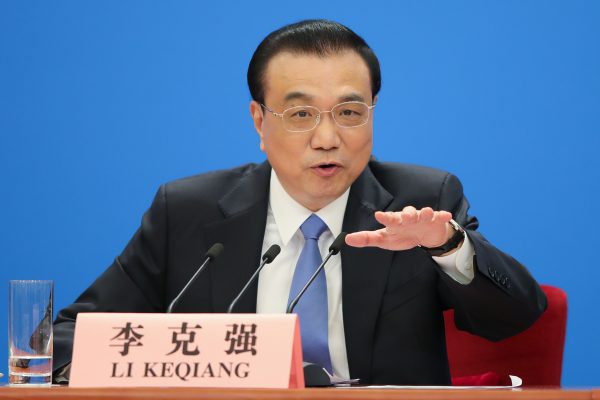
More importantly, none of Li’s policies and recommendations would see the light of day without Xi’s approval. Despite the Journal’s framing, the article actually confirms that Xi is pragmatic enough to approve policy shifts in reaction to changing circumstances and that Li has been carrying out his duties as befitting his position. There is also nothing untoward about Li pushing certain candidates to replace him as premier; again, Li can offer recommendations, but Xi makes the final decision.
Yuan Hongbing, an Australia-based Chinese dissident and jurist familiar with developments in the CCP elite, told the Chinese language edition of The Epoch Times on May 12 that Xi Jinping is in “full control” over the Party’s apparatus, including the military, domestic security, propaganda, and anti-corruption agencies. Given the circumstances, Li Keqiang and others lack the ability to effectively check Xi’s actions per the logic of CCP’s political operations even if they wanted to.
Yuan also believes that Li has no say over who his replacement will be. “If Li fully obeys Xi’s political arrangements, he could retain an honorary position in future, such as chairman of the Chinese People’s Political Consultative Conference. If Li fails to cooperate [with Xi], it’ll be the end of his political career,” Yuan said.
Who benefits from a ‘Xi-Li split’?
Observers have been talking about a so-called “Xi-Li split” or “Xi-Li struggle” for several years. They cite as evidence what seems like differences between the two in public rhetoric and policy to justify the notion of a fracture. Like the recent rumors, however, many of the “differences” between Xi Jinping and Li Keqiang are discredited by subsequent developments or turn out to be misreadings of what are actually mundane Party operations and protocol.
Xi and Li almost certainly have their differences over policy. It is also possible that the mounting pressures of strongman rule have made Xi more paranoid of Li and other officials. However, signs of an obvious rift between Xi and Li have yet to publicly manifest.
RELATED
- Premier Li Keqiang Asks Officials to Avoid Communist-style ‘Bureaucratism’ as China’s Economic Crisis Worsens
- Li Keqiang to Step Down Amid Xi’s Struggle for a Third Term This Fall
From the perspective of factional politics in the CCP elite, there is little incentive for either man to turn on each other. Unlike Xi Jinping the Party princeling, Li Keqiang hails from a “commoner” background. Even if Li harbored designs against Xi, he would find it hard to muster support for action within the Party elite, who, to quote Orwell, certainly believe that “some animals are more equal than others.”
Xi and Li are also political allies against the once highly influential Jiang Zemin faction, who attempted a coup against Li’s political patron Hu Jintao and incoming General Secretary Xi in 2012 after the Wang Lijun incident. While the Jiang faction is losing influence and Xi has been growing in strength, both Xi and Li would be wary of efforts to drive a wedge between them and split the Xi leadership, which only benefits the Jiang faction and others in the “anti-Xi coalition.”
Indeed, there is reason to believe that Xi’s political rivals are behind the recent negative rumors about Xi and Li, or at least the wide circulation of those rumors. Former senior State Department policy planning official Miles Yu told The Washington Times that such rumors, regardless of their veracity, are “often weaponized and used by feuding CCP factions in frequent power struggles.”
Mounting discontentment
Their validity notwithstanding, the various political rumors concerning Xi Jinping point to rising discontentment within the Party over the disastrous policies implemented on his watch. Hints that Xi is facing a degree of pushback internally can also be glimpsed from the use of certain phrases in official propaganda.
For instance, Xi’s call to “unswervingly adhere to the general policy of dynamic zero-COVID, and resolutely oppose all distortions, doubts, and denials” during the Politburo Standing Committee meeting on May 5 and the subsequent repeating of this phrase in state and Party media indicates that there are “doubts and denials” being expressed about Xi’s “zero-COVID.”
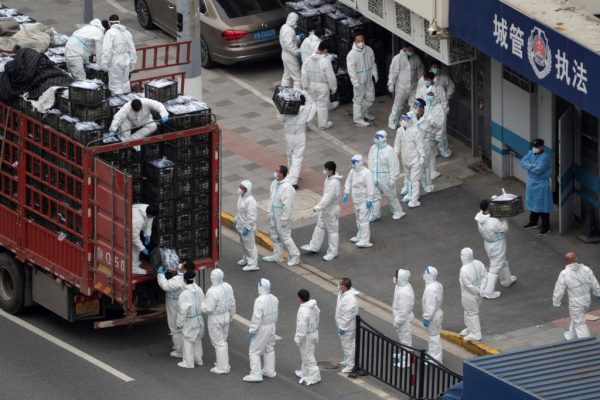
Further, Xi’s demand that Party committees, governments and sectors of society at all levels “align their thinking and actions with the decisions and deployments of Party Central,” as well as “consciously maintain a high degree of consistency in ideology, politics, and action” with Party Central, indicates that the contrary situation is occurring with enough frequency to concern Beijing.
Another sign of brewing discontent towards Xi can be inferred from a new set of regulations concerning veteran and retired Party cadres. Issued by the CCP General Office on May 15, the regulations instruct retired cadres and Party members “not to have improper discussions of Party Central’s major policies, not to spread political negative remarks, not to participate in illegal social organization activities, and not to use their former authority or position influence to seek benefits for themselves and others,” as well as to “resolutely oppose and resist various erroneous ideological trends.”
That veteran and retired Party cadres are explicitly being warned against the following indicates that such activities have been taking place. The Xi leadership’s effort to shut down “improper discussions” and other quasi-mutinous activities is likely an effort to stop his enemies from mobilizing politically against him in the lead-up to the 20th Party Congress. As previously indicated, internal contradictions detrimental to the regime are escalating within the CCP.
Xi and the CCP may have their crises to face, but opponents of the regime cannot afford to engage in wishful thinking when dubious information about fractures in the Party elite emerge. In his interview with The Epoch Times, the Chinese dissident Yuan Hongbing cautioned against accepting rumors and gossip that are inconsistent with the Communist Party’s internal operating logic.
Such information will lead people to “live in fantasy,” and too much fantasy will render them unable to effectively resist the CCP, Yuan warned.
Larry Ong is a senior analyst with New York-based political risk consultancy SinoInsider. He was part of the SinoInsider team that forecasted the 19th Party Congress and 2018 Two Sessions personnel reshuffles with a high degree of accuracy.



